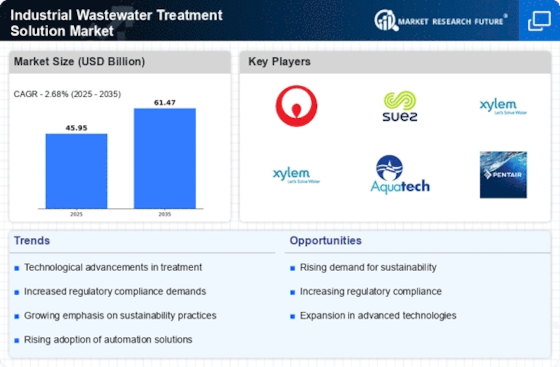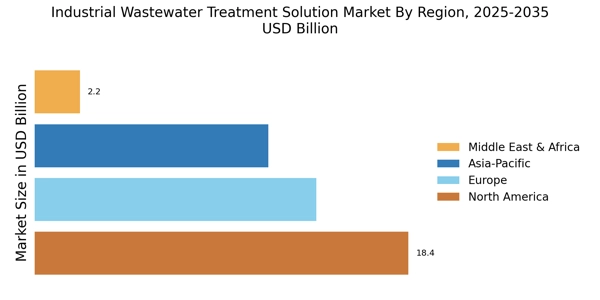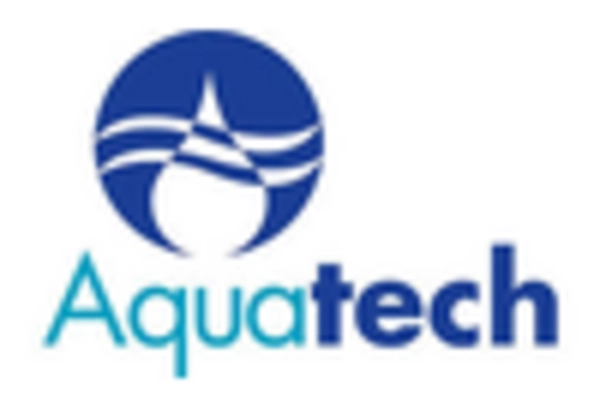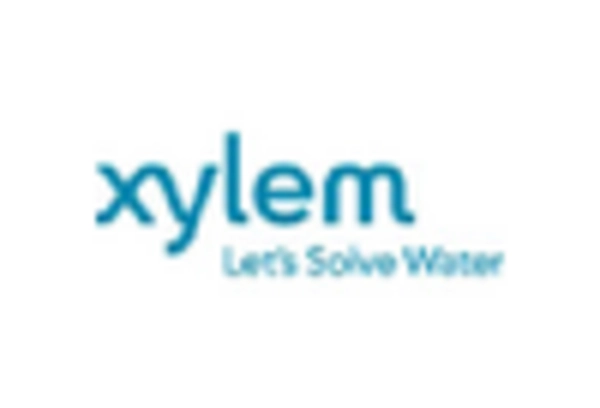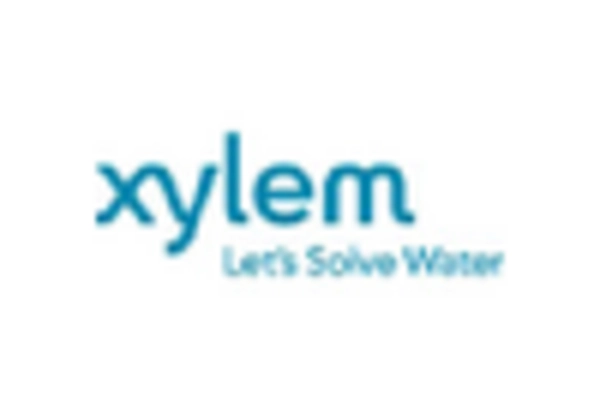Integration of Smart Technologies
The Industrial Wastewater Treatment Solution Market is experiencing a paradigm shift with the integration of smart technologies. The adoption of IoT devices and data analytics is enabling real-time monitoring and management of wastewater treatment processes. This technological integration allows industries to optimize their operations, reduce energy consumption, and enhance treatment efficiency. For instance, predictive maintenance powered by data analytics can identify potential equipment failures before they occur, minimizing downtime and maintenance costs. As industries increasingly recognize the benefits of smart technologies, the market for intelligent wastewater treatment solutions is anticipated to expand, potentially leading to a market growth rate of around 7% in the coming years.
Rising Industrialization and Urbanization
The rapid pace of industrialization and urbanization is a key driver of the Industrial Wastewater Treatment Solution Market. As more industries establish operations in urban areas, the volume of wastewater generated is increasing significantly. This surge necessitates the implementation of effective wastewater treatment solutions to manage the rising pollution levels. For instance, emerging economies are witnessing a boom in manufacturing and construction activities, leading to heightened demand for wastewater treatment facilities. The market is expected to benefit from this trend, with projections indicating a potential increase in market size by over 10% in the next five years as industries strive to mitigate their environmental impact.
Growing Awareness of Environmental Sustainability
There is a growing awareness of environmental sustainability among industries, which is significantly influencing the Industrial Wastewater Treatment Solution Market. Companies are increasingly recognizing the importance of sustainable practices in their operations, driven by consumer demand and corporate social responsibility initiatives. This shift in mindset is prompting industries to invest in advanced wastewater treatment solutions that minimize environmental impact. For example, industries are adopting zero-liquid discharge systems to ensure that no wastewater is released into the environment. As sustainability becomes a core component of business strategies, the market for industrial wastewater treatment solutions is likely to expand, with an anticipated growth rate of approximately 5% over the next few years.
Technological Advancements in Treatment Processes
Technological innovations are reshaping the Industrial Wastewater Treatment Solution Market, leading to more efficient and cost-effective treatment processes. The advent of advanced filtration systems, membrane bioreactors, and chemical treatment methods has enhanced the ability to treat complex wastewater streams. These technologies not only improve treatment efficiency but also reduce operational costs, making them attractive to industries. For example, the integration of membrane technology has been shown to increase the recovery of water from wastewater by up to 90%, thereby promoting water reuse. As industries seek to optimize their operations and minimize waste, the demand for cutting-edge treatment solutions is expected to rise, driving market growth significantly.
Regulatory Compliance and Sustainability Initiatives
The Industrial Wastewater Treatment Solution Market is increasingly driven by stringent regulatory frameworks aimed at reducing environmental pollution. Governments worldwide are implementing laws that mandate the treatment of industrial wastewater before discharge. This regulatory pressure compels industries to invest in advanced treatment solutions to ensure compliance. For instance, the U.S. Environmental Protection Agency has established guidelines that necessitate the reduction of contaminants in wastewater. As a result, the market is witnessing a surge in demand for innovative treatment technologies that not only meet regulatory standards but also promote sustainability. The market is projected to grow at a compound annual growth rate of approximately 6% over the next five years, reflecting the urgency for industries to adopt effective wastewater management practices.


